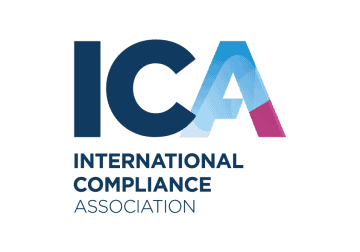If you want to establish your business in UAE / Dubai, opting for a Free Zone company registration can be a strategic move. UAE / Dubai Free Zones offer numerous benefits, including tax advantages, streamlined processes, and access to world-class infrastructure. Below, we’ll guide you through the essential information you need about UAE / Dubai Free Zone company registrations, including tax facts and the registration process.
Company Registration Process
The process of registering a company in a UAE / Dubai Free Zone is straightforward and typically involves the following steps:
Choose the Free Zone
Research the one that best suits your business needs and objectives. Each Free Zone may have specific regulations and requirements.
Select Business Activities
Determine your company’s activities and ensure they are permitted within the Free Zone.
Choose Company Structure
Decide on the type of legal entity for your business, such as a Free Zone establishment (FZE) or Free Zone Company (FZCO).
Submit Application
Prepare and submit the required documents, including passport copies, business plans, and application forms, to the Free Zone authority.
Obtain Approvals
Await approval from the Free Zone authority, which typically involves reviewing the submitted documents and ensuring compliance with regulations.
Lease Office Space
Secure office space within the Free Zone, as physical presence is often a requirement for company registration.
License Issuance
Once all requirements are met, the Free Zone authority will issue the trade license, allowing you to commence business operations.
Open Bank Account
Open a corporate bank account in UAE to facilitate business transactions and manage finances effectively.
Residence Permits
UAE / Dubai offers different residence permits to cater to various categories of individuals, including investors, employees, and dependents. Some common types of residence permits include:
- Investor/Partner Visa: Issued to investors and business owners establishing a company in a Dubai Free Zone. This visa allows individuals to reside in Dubai and manage their business operations.
- Employment Visa: Obtained by employees sponsored by a Dubai-based employer. The employment visa is tied to the sponsoring company and allows individuals to work and legally reside in Dubai.
- Dependent Visa: Available for spouses, children, and other dependents of residents in Dubai. Dependents can obtain residence permits sponsored by their family members residing in Dubai.
Why Choose UAE / Dubai Free Zone Company Registration?
UAE / Dubai Free Zones are designated areas where foreign investors can establish their businesses with complete ownership and enjoy various incentives provided by the government. Here are some key reasons why entrepreneurs opt for Free Zone company registration in UAE / Dubai:
- 100% Foreign Ownership: In Free Zones, foreign investors can own 100% of their companies without needing a local sponsor or partner.
- Tax Benefits: Companies operating within Free Zones are typically exempt from corporate and personal income taxes for a certain period, providing significant cost savings.
- Effortless Company Setup: The registration process in Free Zones is not just streamlined; it's a breeze. We ensure quick and efficient setup procedures, giving you the confidence to start your business journey without hassle.
- Access to Global Markets: UAE / Dubai's strategic location offers access to markets across the Middle East, Africa, and Asia, making it an ideal hub for international trade.
Tax Facts in UAE / Dubai Free Zones
When it comes to UAE / Dubai Free Zone company registration, understanding the unique tax framework is key. Here, we present the distinct tax benefits that make these zones an attractive choice for businesses:
Corporate Tax
Companies registered in UAE / Dubai Free Zones are generally exempt from corporate tax for 15 to 50 years, depending on the Free Zone.
Personal Income Tax
No personal income tax exists in UAE / Dubai, regardless of whether you operate within or outside a Free Zone.
Customs Duty
Free Zone companies enjoy exemption from customs duty for goods imported and exported through the Freezone, offering significant cost savings for businesses engaged in international trade.
Value Added Tax (VAT)
VAT was introduced in the UAE in 2018. While most goods and services are subject to VAT at a standard rate of 5%, certain sectors and activities within Free Zones may be eligible for exemptions or special VAT treatment.








